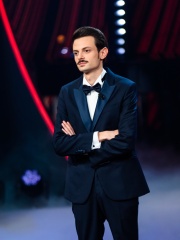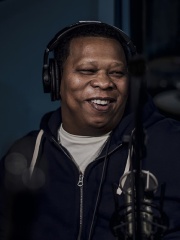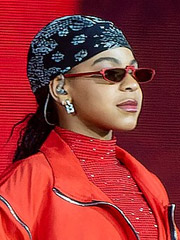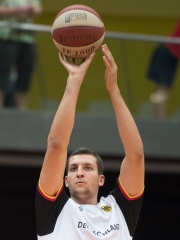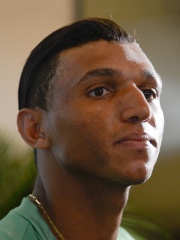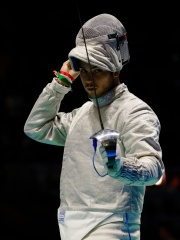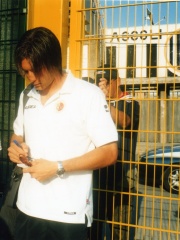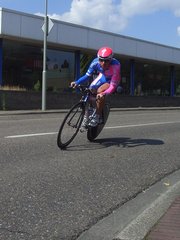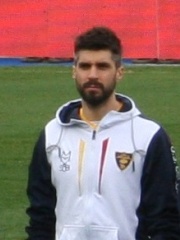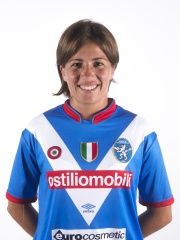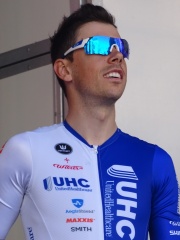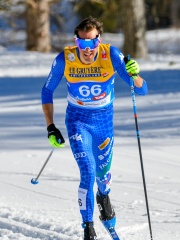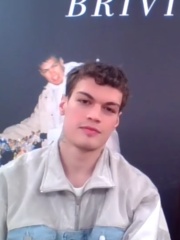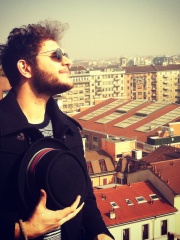Singer
Fabio Rovazzi
1994 - today
EN.WIKIPEDIA PAGE VIEWS (PV)
 Fabio Rovazzi
Fabio Rovazzi
His biography is available in 21 different languages on Wikipedia. Fabio Rovazzi is the 4,561st most popular singer (down from 4,061st in 2024), the 5,339th most popular biography from Italy (down from 5,067th in 2019) and the 153rd most popular Italian Singer.
Memorability Metrics
Page views of Fabio Rovazzi by language
Among Singers
Among singers, Fabio Rovazzi ranks 4,561 out of 4,381. Before him are Mannie Fresh, Stormzy, Thea Garrett, Blue Ivy Carter, Joe Budden, and Kim Cesarion. After him are NC.A, Deborah Cox, Saba, Hyuk, Jaani Peuhu, and PinkPantheress.
Most Popular Singers in Wikipedia
Go to all RankingsMannie Fresh
1969 - Present
HPI: 36.16
Rank: 4,555
Stormzy
1993 - Present
HPI: 36.12
Rank: 4,556
Thea Garrett
1992 - Present
HPI: 36.11
Rank: 4,557
Blue Ivy Carter
2012 - Present
HPI: 36.10
Rank: 4,558
Joe Budden
1980 - Present
HPI: 36.08
Rank: 4,559
Kim Cesarion
1990 - Present
HPI: 36.08
Rank: 4,560
Fabio Rovazzi
1994 - Present
HPI: 36.07
Rank: 4,561
NC.A
1996 - Present
HPI: 36.06
Rank: 4,562
Deborah Cox
1974 - Present
HPI: 36.04
Rank: 4,563
Saba
1997 - Present
HPI: 36.02
Rank: 4,564
Hyuk
1995 - Present
HPI: 35.99
Rank: 4,565
Jaani Peuhu
1978 - Present
HPI: 35.99
Rank: 4,566
PinkPantheress
2001 - Present
HPI: 35.97
Rank: 4,567
Contemporaries
Among people born in 1994, Fabio Rovazzi ranks 877. Before him are Paul Zipser, Josip Elez, Benno Schmitz, Cayden Boyd, Cristina Chirichella, and Anass Achahbar. After him are Ryan Thomas, Isaquias Queiroz, Vladlen Yurchenko, Luca Curatoli, Ludmila, and Renzo Lopez.
Others Born in 1994
Go to all RankingsPaul Zipser
BASKETBALL PLAYER
1994 - Present
HPI: 36.18
Rank: 871
Josip Elez
SOCCER PLAYER
1994 - Present
HPI: 36.18
Rank: 872
Benno Schmitz
SOCCER PLAYER
1994 - Present
HPI: 36.15
Rank: 873
Cayden Boyd
ACTOR
1994 - Present
HPI: 36.10
Rank: 874
Cristina Chirichella
ATHLETE
1994 - Present
HPI: 36.10
Rank: 875
Anass Achahbar
SOCCER PLAYER
1994 - Present
HPI: 36.08
Rank: 876
Fabio Rovazzi
SINGER
1994 - Present
HPI: 36.07
Rank: 877
Ryan Thomas
SOCCER PLAYER
1994 - Present
HPI: 36.07
Rank: 878
Isaquias Queiroz
ATHLETE
1994 - Present
HPI: 36.07
Rank: 879
Vladlen Yurchenko
SOCCER PLAYER
1994 - Present
HPI: 36.06
Rank: 880
Luca Curatoli
FENCER
1994 - Present
HPI: 36.06
Rank: 881
Ludmila
SOCCER PLAYER
1994 - Present
HPI: 36.05
Rank: 882
Renzo Lopez
SOCCER PLAYER
1994 - Present
HPI: 36.03
Rank: 883
In Italy
Among people born in Italy, Fabio Rovazzi ranks 5,340 out of NaN. Before him are Michele Paolucci (1986), Simone Venier (1984), Paolo Bossoni (1976), Luca Rossettini (1985), Cristina Chirichella (1994), and Matteo Sobrero (1997). After him are Luca Curatoli (1994), Romano Floriani Mussolini (2003), Lorenzo Tonelli (1990), Daniela Sabatino (1985), Marco Canola (1988), and Francesco De Fabiani (1993).
Others born in Italy
Go to all RankingsMichele Paolucci
SOCCER PLAYER
1986 - Present
HPI: 36.14
Rank: 5,334
Simone Venier
ATHLETE
1984 - Present
HPI: 36.13
Rank: 5,335
Paolo Bossoni
CYCLIST
1976 - Present
HPI: 36.12
Rank: 5,336
Luca Rossettini
SOCCER PLAYER
1985 - Present
HPI: 36.11
Rank: 5,337
Cristina Chirichella
ATHLETE
1994 - Present
HPI: 36.10
Rank: 5,338
Matteo Sobrero
CYCLIST
1997 - Present
HPI: 36.10
Rank: 5,339
Fabio Rovazzi
SINGER
1994 - Present
HPI: 36.07
Rank: 5,340
Luca Curatoli
FENCER
1994 - Present
HPI: 36.06
Rank: 5,341
Romano Floriani Mussolini
SOCCER PLAYER
2003 - Present
HPI: 36.02
Rank: 5,342
Lorenzo Tonelli
SOCCER PLAYER
1990 - Present
HPI: 36.01
Rank: 5,343
Daniela Sabatino
SOCCER PLAYER
1985 - Present
HPI: 35.96
Rank: 5,344
Marco Canola
CYCLIST
1988 - Present
HPI: 35.96
Rank: 5,345
Francesco De Fabiani
SKIER
1993 - Present
HPI: 35.95
Rank: 5,346
Among Singers In Italy
Among singers born in Italy, Fabio Rovazzi ranks 153. Before him are Malika Ayane (1984), Blanco (2003), Ghali (1993), Andrea Ferro (1973), Michele Perniola (1998), and Marco Carta (1985). After him are Michele Bravi (1994), Sara Jo (1993), Vincenzo Cantiello (2000), and Renzo Rubino (1988).
Malika Ayane
1984 - Present
HPI: 39.85
Rank: 147
Blanco
2003 - Present
HPI: 39.56
Rank: 148
Ghali
1993 - Present
HPI: 38.71
Rank: 149
Andrea Ferro
1973 - Present
HPI: 38.21
Rank: 150
Michele Perniola
1998 - Present
HPI: 37.81
Rank: 151
Marco Carta
1985 - Present
HPI: 36.51
Rank: 152
Fabio Rovazzi
1994 - Present
HPI: 36.07
Rank: 153
Michele Bravi
1994 - Present
HPI: 35.40
Rank: 154
Sara Jo
1993 - Present
HPI: 35.00
Rank: 155
Vincenzo Cantiello
2000 - Present
HPI: 34.75
Rank: 156
Renzo Rubino
1988 - Present
HPI: 33.31
Rank: 157
